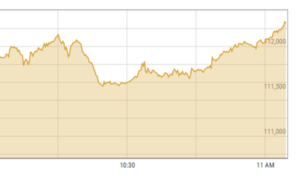Vice, the dynamic, fast-growing digital media company that gained a wide following with young readers, said on Thursday it will no longer publish on its flagship website and is eliminating hundreds of jobs.
Millennial-focused and known for its edgy news and lifestyle content, Vice had been among the rising stars of a new breed of digital media firms but struggled as advertising revenues shrank.
The move is the latest dose of depressing news for America’s struggling media industry, which saw BuzzFeed News close up shop last year after 12 years in business.
“With this strategic shift comes the need to realign our resources and streamline our overall operations at Vice,” Bruce Dixon, chief executive of Vice Media Group, told employees in a memo, copies of which were posted online by several Vice reporters.
“Regrettably, this means that we will be reducing our workforce, eliminating several hundred positions.” Dixon said it is “no longer cost-effective for us to distribute our digital content the way we have done previously.”
Moving ahead, the company “will look to partner with established media companies to distribute our digital content, including news, on their global platforms, as we fully transition to a studio model,” he added.
Employees affected by the layoffs will be notified early next week.
It marks a dramatic fall for a brash upstart media company that was valued at a stunning $5.7 billion six years ago, but ended up filing for bankruptcy last May.
The next month a group of creditors led by Fortress Investment Group picked up the company for a relative song, at $350 million.
Many digital media startups have been unable to convert enthusiasm for their brand into the kinds of revenues that investors had projected.
A slowdown in the online advertising market and tightening of credit conditions last year made the situation increasingly challenging for relatively young media companies like Vice.
Vice was founded in 1994 as a Canadian magazine and grew into an online media group with news websites and television operations.
It cultivated a “bad boy” image and its success captured the attention of the media world as it connected with young audiences.
But in 2018 co-founder Shane Smith stepped down as chief executive after the group was tainted by reports of workplace harassment, which led to the dismissal of three employees.







